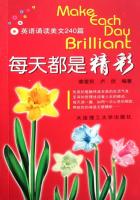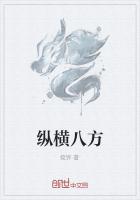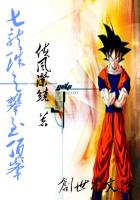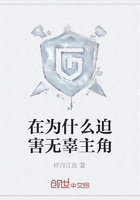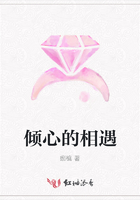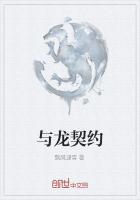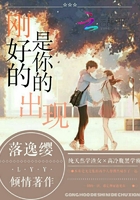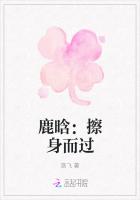Macaulay had wealth and fame, rank and power, and yet he tells us in his biography that he owed the happiest hours of his life to books. In a charming letter to a little girl , he says: "If anyone would make me the greatest king that ever lived , with palaces and gardens and fine dinners, and wines and coaches, and beautiful clothes, and hundreds of servants, on condition that I should not read books, I would not be a king. I would rather be a poor man in garret with plenty of books than a king who did not love reading."
书对于人类,就如同记忆对于个人一样。书记载了民族的历史,人类的发现,世代累积的知识和?验;书为我们描述自然界的奇迹和美丽,帮我们渡过难关,在我们伤痛时给予安慰,将疲劳的日子变为快乐的时刻;书把各种想法存储于我们的头脑,并用美好而快乐的思想充实它,从而使我们得以提升与超越。
读书时,请不要做王宫里的国王,最好让自己沉醉在山林海滨,探寻美丽奇景,而不必受疲惫、麻烦和费用巨大之苦。书籍把珍贵无价的祝福撒在身边的小径。我们以高尚的心灵,在想象中穿过瑰丽迷人的地方。
麦考利拥有财富和名声、地位和权力,然而他在自传里告诉我们,他一生中最快乐的时光就是与书为伴的日子。在一封写给一个小女孩的迷人信件中,他写道:“如果有人能让我做有史以来最伟大的国王,让我拥有宫殿、园林、美酒、佳肴、马车、华服和上百名仆从,却以不能读书为条件,我不会做这个国王。我宁愿做个穷人,住在小阁楼却能博览群书,而不愿变成不爱读书的国王。”
适合的才是最好的
Suit Is Best
[英国]威廉·黑兹利特/William Hazlitt
The proper force of words lies not in the words themselves, but in their application. A word may be a fine sounding word, of an unusual length, and very imposing from its learning and novelty, and yet in the connection in which it is introduced may be quite pointless and irrelevant. It is not pomp or pretension, but the adaptation of the expression to the idea, that clenches a writer' s meaning: as it is not the size or glossiness of the materials, but their being fitted each to its place, that gives strength to the arch; or as the pegs and nails are as necessary to the support of the building as the larger timbers, and more so than the mere showy, unsubstantial ornaments. I hate anything that occupies more space than it is worth. I hate to see a load of bandboxes go along the street, and I hate to see a parcel of big words without anything in them. A person who does not deliberately dimples of all his thoughts alike in cumbrous draperies and flimsy disguises—may strike out twenty varieties of familiar everyday language, each coming somewhat nearer to the feeling he wants to convey, and at last not hit upon that particular and only one which may be said to be identical with the exact impression in his mind. This would seem to show that Mr. Cobalt is hardly right in saying that the first word that occurs is always the best. It may be a very good one; and yet a better may present itself on reflection or from time to time. It may be suggested naturally, however, and spontaneously, from a fresh and lively conception of the subject.
词汇的严格意义不在于词汇本身,而在于词汇的应用。一个单词可能音节嘹亮,字母很多,单就它的学术价值和新奇感来说,可能是令人叹赏的,然而把它放在具体的语境中,也可能毫无意义。表达作者的写作意图不是依靠词汇的华丽和夸张,而是对作者主题的贴切适用。正如在建筑中,不必在意材料的大小和光泽,只要它们砌合得完整严实,就能牢固地支撑拱门。又或是在建筑物中,木楔和钉子的支撑作用有时竟与大件木料同等重要,它的作用远远胜过那些徒有其表、不结实的装饰部件。我讨厌那些空占地方的东西,讨厌满载一大堆空纸盒的车招摇过市,也讨厌堆砌那些大而无实际内容的词汇。一个人写文章,只要他不是故意用重重锦绣帐幔和多余伪装完全遮掩自己的写作意图,他总会从熟悉的日常用语中想出一二十种说法,这种语言更接近他所要表达的情感。最后,他就会因为不知道挑选哪一种说法能更好地表达自己而发愁!这样看来,考拜特先生所谓的“第一印象就是最好的说法”未必可靠。这样出现的字眼也许很好,可是?过一次次推敲,就会发现更好的字眼。这种字眼,也许来源于自然的暗示,但?过对主题清新活泼的推理,会自然而然地想到。
即使你拥有一把金钥匙,但不是能打开宝藏大门的钥匙,同样也无法获得更多的财富。一把钥匙只能开一把锁,合适的才是最好的。
书 友
Companionship of Books
[英国]塞缪尔·斯迈尔斯/Samuel Smiles
A man may usually be known by the books he reads as well as by the company he keeps; for there is a companionship of books as well as of men; and one should always live in the best company, whether it be of books or of men.
A good book may be among the best of friends. It is the same today that it always was, and it will never change. It is the most patient and cheerful of companions. It does not turn its back upon us in times of adversity or distress. It always receives us with the same kindness; amusing and instructing us in youth, and comforting and consoling us in age.
Men often discover their affinity to each other by the love they have each for a book—just as two persons sometimes discover a friend by the admiration which both have for a third. There is an old proverb, "Love me, love my dog." But there is more wisdom in this: "Love me, love my book." The book is a truer and higher bond of union. Men can think, feel, and sympathize with each other through their favorite author. They live in him together, and he in them.
"Books," said Hazlitt, "wind into the heart; the poet' s verse slides in the current of our blood. We read them when young, we remember them when old. We feel that it has happened to ourselves. They are to be had very cheap and good. We breathe but the air of books."
A good book is often the best urn of a life enshrining the best that life could think out; for the world of a man' s life is, for the most part, but the world of his thoughts. Thus the best books are treasuries of good words, the golden thoughts, which, remembered and cherished, become our constant companions and comforters."They are never alone, " said Sir Philip Sidney, "that are accompanied by noble thoughts."
The good and true thought may in times of temptation be as an angel of mercy purifying and guarding the soul. It also enshrines the germs of action, for good words almost always inspire to good works.
Books possess an essence of immortality. They are by far the most lasting products of human effort. Temples and statues decay, but books survive. Time is of no account with great thoughts, which are as fresh today as when they first passed through their author' s minds, ages ago. What was then said and thought still speaks to us as vividly as ever from the printed page. The only effect of time has been to sift out the bad products; for nothing in literature can long survive but what is really good.
Books introduce us into the best society they bring us into the presence of the greatest minds that have ever lived. We hear what they said and did; we see them as if they were really alive; we sympathize with them, enjoy with them, grieve with them; their experience becomes ours, and we feel as if we were in a measure actors with them in the scenes which they describe.

